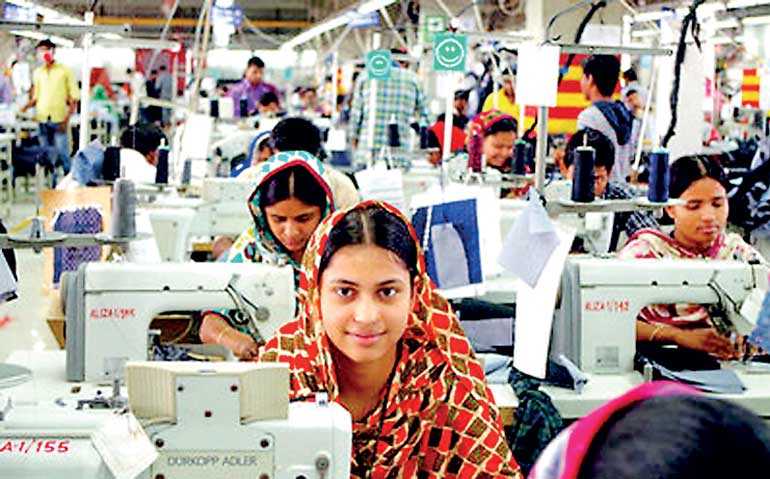Tuesday Feb 24, 2026
Tuesday Feb 24, 2026
Tuesday, 18 June 2019 00:00 - - {{hitsCtrl.values.hits}}

DHAKA (Reuters): Garment manufacturers in Bangladesh on Sunday demanded higher export subsidies from the government, saying proposals in the latest national budget, unveiled last week, were not enough to compensate for higher production costs and low prices.
Bangladesh textile industry earns about $ 30 billion annually by exporting ready made garments, which represents about 16% of the economy and employs over 4 million workers.
But last year, the prices of garments fell 7.4% in the United States market and 3.64% in the European market compared to 2012, according to the Bangladesh Garment Manufacturers and Exporters Association (BGMEA).
Manufacturers’ costs have been rising, mainly driven by labour costs. Last year, for example, there was a big increase in the minimum wage for Bangladesh garment makers.
In April, the garment makers asked the government to extend a 5% export subsidy for the industry that was due to end on June 30.
The budget proposed an enhanced one-time cash incentive for garment exporters of 5% of the value of goods exported to a new market from 4% currently. It also proposed an additional cash subsidy of 1% of total value of garments exported.
The garment industry is pressing the government to increase the additional incentive to 3% from the proposed 1% before the budget goes to parliament for approval.
Finance Minister AHM Mustafa Kamal’s budget for the fiscal year of 2019-20 that starts in July has total expenditure of 5.23 trillion taka ($ 61.90 billion) and an economic growth target of 8.2% for the year. It has yet to be ratified by the parliament.
The Bangladesh Garment Manufacturers and Exporters Association is backing the demand for higher subsidies because of the slump in international prices and increased costs.
Rubana Huq, BGMEA president, said a number of factories had had to sell machinery to pay monthly wages and bonuses linked to the end of Ramadan. “We urge government to look after the sector,” Huq said.